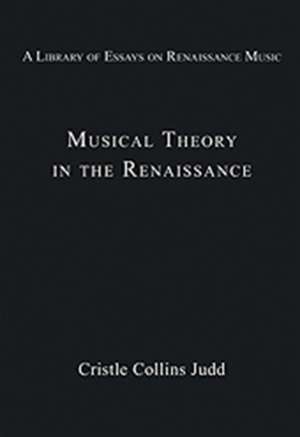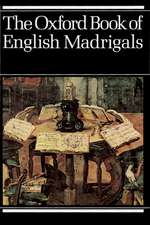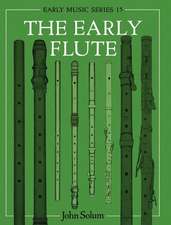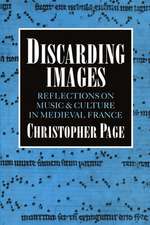Musical Theory in the Renaissance: A Library of Essays on Renaissance Music
Editat de Cristle Collins Judden Limba Engleză Hardback – 28 apr 2013
| Toate formatele și edițiile | Preț | Express |
|---|---|---|
| Paperback (1) | 230.58 lei 6-8 săpt. | |
| Taylor & Francis – 14 oct 2024 | 230.58 lei 6-8 săpt. | |
| Hardback (1) | 1979.04 lei 6-8 săpt. | |
| Taylor & Francis – 28 apr 2013 | 1979.04 lei 6-8 săpt. |
Preț: 1979.04 lei
Preț vechi: 2658.20 lei
-26% Nou
Puncte Express: 2969
Preț estimativ în valută:
378.79€ • 393.96$ • 317.42£
378.79€ • 393.96$ • 317.42£
Carte tipărită la comandă
Livrare economică 14-28 martie
Preluare comenzi: 021 569.72.76
Specificații
ISBN-13: 9781409422976
ISBN-10: 1409422976
Pagini: 640
Ilustrații: Illustrations
Dimensiuni: 169 x 244 x 57 mm
Greutate: 1.45 kg
Ediția:New ed.
Editura: Taylor & Francis
Colecția Routledge
Seria A Library of Essays on Renaissance Music
Locul publicării:Oxford, United Kingdom
ISBN-10: 1409422976
Pagini: 640
Ilustrații: Illustrations
Dimensiuni: 169 x 244 x 57 mm
Greutate: 1.45 kg
Ediția:New ed.
Editura: Taylor & Francis
Colecția Routledge
Seria A Library of Essays on Renaissance Music
Locul publicării:Oxford, United Kingdom
Public țintă
AcademicCuprins
Contents: Introduction; Part I Terms and Topics: Resfacta and Cantare Super Librum, Margaret Bent; On compositional process in the 15th century, Bonnie J. Blackburn; On diminution and proportion in 15th-century music theory, Ruth I. DeFord; Is mode real? Pietro Aron, the octenary system, and polyphony, Harold Powers; Renaissance modal theory: theoretical, compositional, and editorial perspectives, Cristle Collins Judd. Part II Influences and Authorities: Renaissance music theory as literature: on reading the Proportionale Musices of Iohannes Tinctoris, Ronald Woodley; Aristoxenus redeemed in the Renaissance, Claude V. Palisca; Modes and planetary song: the musical alliance of ethics and cosmology, Gary Tomlinson; Defending the Dodecachordon: ideological currents in Glarean’s modal theory, Sarah Fuller; Heinrich Glarean reading and editing Boethius, Inga Mai Groote. Part III Life and Works of Individual Theorists: The tradition and science: the Istitutioni harmoniche of Gioseffo Zarlino, Paolo da Col; Introduction, Maria R. Maniates. Part IV National Traditions and Dissemination: Lute tablature instructions in Italy: a survey of the regole from 1507 to 1759, Dinko Fabris; Deutsche Musiktheorie im 16.Jahrundert: Geistes- und institutionsgeschichtliche Grundlagen, Klaus Wolfgang Niemöller; You can tell a book by its cover: reflections on format in English music 'theory', Jessie Ann Owens; La diffusion de textes théoriques français à la renaissance, Philippe Vendrix; Music and music theory in the universities of Central Europe during the 15th century, Tom R. Ward; The dissemination and use of European music books in early modern Asia, David R.M. Irving; Name index.
Notă biografică
Cristle Collins Judd is Dean for Academic Affairs and Professor of Music at Bowdoin College, USA.
Descriere
This volume of essays draws together recent work on historical music theory of the Renaissance. The articles span the major themes addressed by Renaissance writers on music and highlight the range of approaches used by modern scholars. Taken together, this collection enables consideration of key essays side by side aided by the editor’s introductory essay which highlights ongoing debates and offers a general framework for interpreting past and future directions in the study of historical music theory from the Renaissance.


















